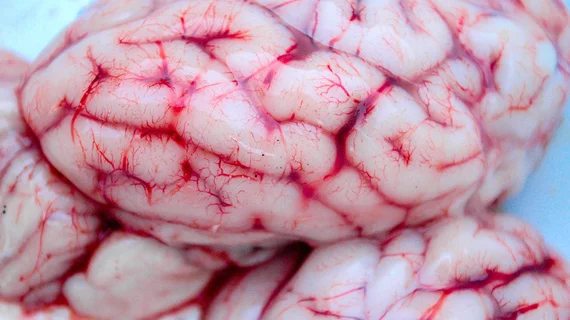Cleveland Clinic team awarded millions for neuroimaging project investigating Parkinson’s disease
Cleveland Clinic researchers have received a $3.8 million grant to develop imaging and other biomarkers to predict dementia in patients with Parkinson’s disease.
The National Institute of Neurological Disorders and Stroke, part of the National Institutes of Health, will be backing the five-year project, according to an Oct. 6 announcement.
As part of the endeavor, Cleveland Clinic’s Lou Ruvo Center for Brain Health will use advanced imaging techniques, such as diffusion-weighted MRI and resting-state functional MRI, to understand how different brain regions interact and share information.
“Although dementia affects approximately 50%-80% of those living with Parkinson’s disease within 12 years of diagnosis, currently there are no means for predicting dementia in specific individuals,” Virendra Mishra, PhD, with the clinic’s brain health group, said in a statement. “The possibility of identifying who will develop dementia with Parkinson’s disease progression has several clinical benefits, including providing individuals with greater clarity on their future and helping clinicians better manage disease progression.”
The goal of the project, according to the Cleveland Clinic, is to develop a predictive mathematical model using imaging, blood, cerebrospinal fluid and genetic biomarkers that can be used in clinical care to improve patient outcomes. Identifying these markers will assist clinical trials investigating novel therapies for Parkinson’s disease.
Mishra said the new imaging approaches developed during the study will also be used to investigate other neurodegenerative diseases such as Alzheimer’s.

